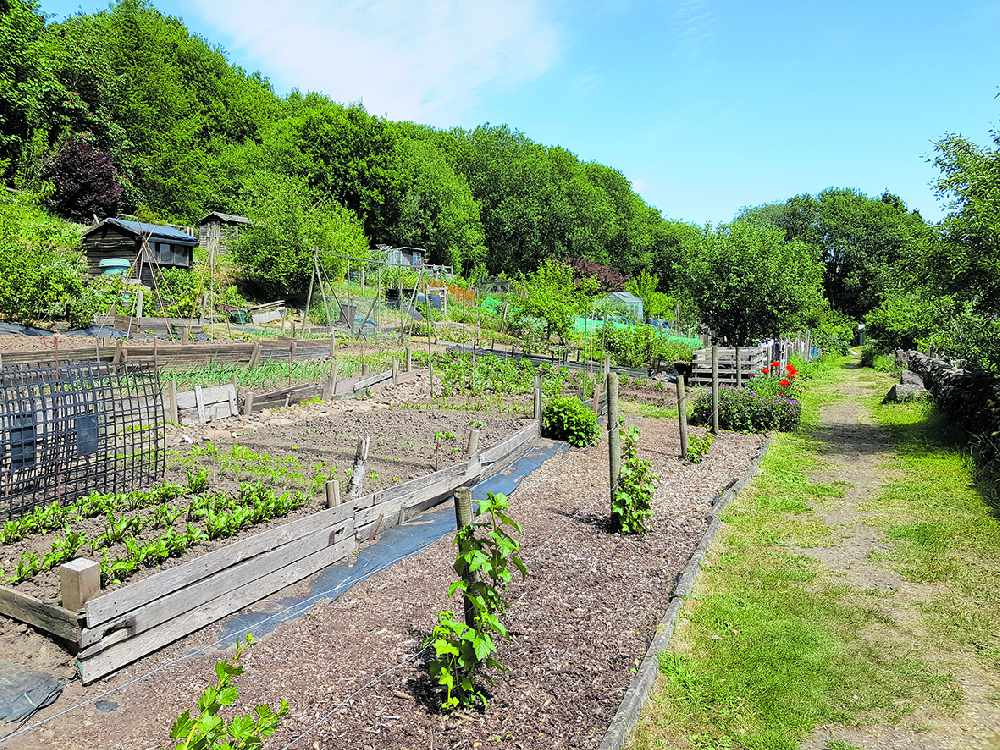
Gardeners at Chinley allotments, who were alarmed when their crops died or exhibited grotesquely deformed growth, say tests carried out by a leading chemical company confirmed herbicide poisoning.
“We were really alarmed when plants started to die,” said Stephen Minter, the chairperson of Chinley Allotment Association.
“At first we couldn’t understand where the contamination was coming from, but it now appears that animal manure is the likely source.
“We compost horse manure from local stables and use this as a fertiliser. It seems that stable owners are being sold hay that was previously treated with an aminopyralid herbicide.
“This passes unscathed through the animals and remains active in their dung. It has poisoned some of our allotments.”
The association says aminopyralid herbicides were withdrawn from use in the UK in 2008, but re-instated in 2009 with some restrictions on their use.
Farmers are required to sign up to a stewardship programme designed to prevent the movement of contaminated hay and manure from farms.
There has been criticism that the controls don’t work, with a number of instances of contamination across the country, often via animal dung.
Mr Minter says he is ‘disappointed’ by the response of the chemical company, saying: “It took them over six months to process the soil samples they collected. They have now offered us compensation, but what we really want them to do is carry out further analysis, a request they have refused.
“We are trying to do further tests ourselves, but are worried that this problem won’t easily go away. If these plant-killing poisons can escape into the environment so easily, you have to wonder if they should be allowed at all.”
The Chronicle put the claim to Corteva Agriscience, which was formed in 2019 by the merger of Dow AgroScience and other companies to form Corteva.
A Corteva Agriscience spokesman said in response: “First of all, we regret the problems of poor plant growth that have occurred.
“We have investigated the matter and conducted tests on the plot of the one allotment holder who contacted us.
“Restrictions due to Covid-19 hampered both our ability to investigate and for laboratory testing to be undertaken.
“Specialist analysis confirmed the presence of the herbicide clopyralid, not aminopyralid, in manure on the affected site. Both products are used by farmers to control harmful weeds in grassland.
“Corteva Agriscience has provided detailed advice on remedial work that should be undertaken on the allotment to ensure crops can be safely sown this spring.
“While any incident such as this is regrettable, we would assure you that the number of such incidents is very small.
“However, we are revising and strengthening the instructions for use for clopyralid-containing herbicides to minimise further any future occurrence as it is important that gardeners and growers can enjoy the benefits of using manure with confidence.”
Read more from the Glossop Chronicle
Click here for more of the latest news
Click here to read the latest edition of the paper online
Click here to find out where you can pick up a copy of the paper


 Football and visit to Venice were highlights of Italy trip for Glossop pupils
Football and visit to Venice were highlights of Italy trip for Glossop pupils
 High Peak business owner delighted by police crackdown on anti-social behaviour
High Peak business owner delighted by police crackdown on anti-social behaviour
 Police appeal after motorcyclist is killed in crash on A54
Police appeal after motorcyclist is killed in crash on A54
 Man charged with four thefts from shops in Glossop
Man charged with four thefts from shops in Glossop



